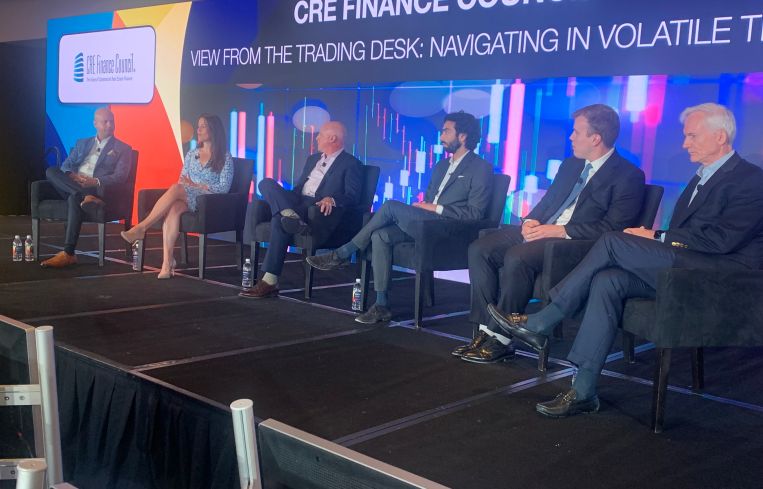CREFC NYC 2022: Valuations Feeling Heat from Inflation
By Andrew Coen June 15, 2022 11:15 am
reprints
Commercial real estate valuations are facing mounting headwinds from inflationary and cap rate pressures.
CRE securities traders who spoke at CRE Finance Council’s annual New York City conference Tuesday said as cap rates move up, rising interest rates will result in lower values across many asset classes. The market also faces near-term challenges with leveraged borrowers staying on the sidelines rather than approaching acquisition loans.
Marshall Glick, senior vice president and senior analyst at AllianceBernstein, stressed the impact of higher cap rates on CRE will vary by sector, with some assets better positioned to withstand the increased costs. For example, hospitality won’t feel as much of a cap rate effect, Glick said, because of the ability to adjust hotel room rates on a daily basis and the fact that occupancy levels are increasing as more people look to travel as the economy opens up more from the height of the COVID-19 pandemic.
“Inflation is definitely impacting commercial real estate and it will impact cap rates, but I don’t think it’s really like a one size fits all as each property type has its own dynamics,” said Glick during a panel titled “A View From the Trading Desk: Navigating in Volatile Times” at the New York Marriott Marquis.
The panel also included Kyra Fecteau, portfolio manager at Wellington Management; Alessandro Morante, managing director at Wells Fargo; and Owen Parker, managing director, real estate Securities at Blackstone. The discussion was moderated by Shaishav Agarwal, global head of capital markets at Deutsche Bank Securities.
Fecteau emphasized that the current volatile market makes it that much more important for investors to analyze each of their properties to see how cap rates may trickle down to lowering valuations.
“We’re at a point in the cycle where there is a confluence of headwinds that make digging really deep into the underlying loans that much more important to really understand what you own and what those valuations are on the underlying properties in CMBS transactions,” she said.
Panelists also stressed that replacement costs are not enough to combat a rising inflation environment facing CRE properties because of structural changes like remote working trends hurting Class B office assets and e-commerce popularity hampering certain retail properties.
“I think you can fool yourself into thinking your basis is fine when you look at replacement costs, especially with the cost of labor and materials today,” Glick said. “My personal feeling is I think the replacement cost is artificially high, and you really have to look at the underlying grants and what you think you can underwrite occupancy to what you think your expenses are and really work it off that as opposed to just looking at replacement costs.”
Andrew Coen can be reached at acoen@commercialobserver.com.



